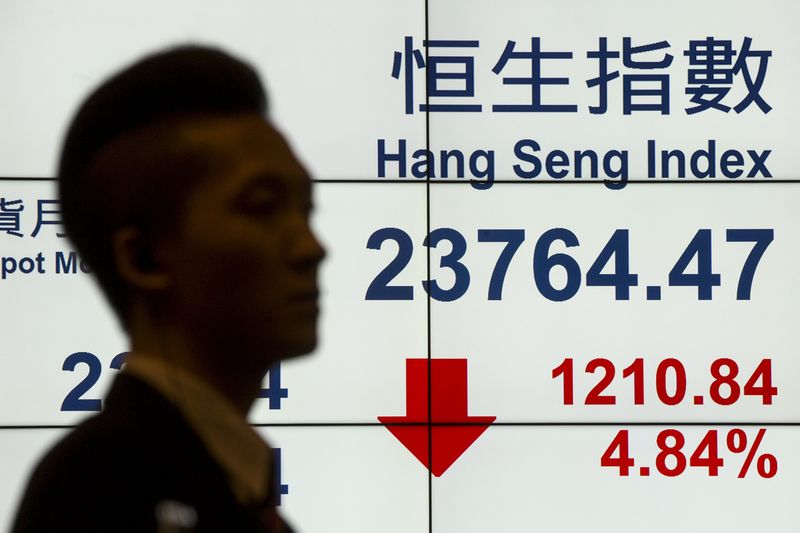By Nichola Saminather
SINGAPORE, Aug 3 (Reuters) - Asian dividend-paying equity funds are reducing investments in traditional safe bets in favour of companies with rising dividend payouts to guard against investors selling out from the funds when U.S. interest rates rise.
Dividend funds usually invest in stable assets that yield more than bonds and pay predictable returns, but these will become less attractive to investors amid rising returns from Treasuries when the Federal Reserve starts to hike rates.
Some fund managers say they are shifting from traditional favourites such as investment trusts, telecoms and utilities to emerging market companies offering faster earnings growth and cheaper valuations.
Dividend funds are buying Chinese state-owned enterprises, Indian banks and Taiwanese technology firms, where payouts, although currently lower, show promise of rising over time.
"Absolute dividend yields might be slightly lower but the prospects for growth are much better, particularly if the Fed starts to increase rates," said Robert Davis, who manages the Asia and emerging markets high dividend funds of NN Investment Partners.
Companies listed on China's CSI300 index .CSI300 offer an average dividend yield of 1.5 percent and India's Sensex .BSESN 1.4 percent. In comparison, firms in Australia .AXJO yield 6 percent, Singapore .FTSTI and Hong Kong .HSI 3.3 percent, and Taiwan .TWII 3.8 percent.
While funds are nervous about China's turbulent share markets and government intervention to halt plunging prices, dividend funds say they are buying cheaper and less volatile Hong Kong-listed shares of Chinese companies.
"We still believe in the mid- to long-term structural reform story in China, albeit it will take longer than our original expectations," said Sat Duhra, who manages Henderson's Asia dividend income fund. "We mostly hold H-shares which offer genuine value at this point."
ATTRACTIVE DIVIDENDS
With U.S. rates near zero, it will be sometime before Treasury yields become competitive with dividend funds.
Among NNIP fund's top holdings are Taiwan Semiconductor Manufacturing Co 2330.TW , China Petroleum & Chemical Corp 600028.SS - one of China's state-owned enterprises which has paid generous dividends - and Shinhan Financial 055550.KS in South Korea, where a new law taxing excess corporate cash has led to several dividend "surprises."
Dividend funds will also attract capital as central banks are still easing in Europe and Asia, said Peter Monson, who co-manages Nikko Asset Management's Shenton Asia Dividend Equity Fund in Singapore.
Three of the five Asia ex-Japan equity vehicles with the most investment fund inflows from January to June were dividend funds, drawing $5 billion between them, according to data from Lipper, a Thomson Reuters unit. That compared with $241 million a year earlier, when two of them saw net outflows.
The Shenton Asia fund prefers Taiwanese technology companies, whose strong and sustainable cashflows support both investment and payouts, Monson said.
Monson also likes India's "incredibly profitable companies generating substantial amounts of cashflow."
"Asian earnings have continued to grow," said Citi Asian strategist Markus Rosgen. "Not so in Europe, Middle East and Africa or Latin America."
Henderson's fund too is boosting holdings of dividend-growth stocks.
Holdings include Bharti Infratel BHRI.NS in India, and Gree Electric Appliances 000651.SZ and Zhengzhou Yutong Bus 600066.SS in China.
"Even if bond yields go up, if a stock increases its DPS (dividend per share) by 50 percent, 100 percent, that stock will perform very differently to a stock that's just high yield and doesn't have any kind of growth," Henderson's Duhra said.
"Despite what goes on with bond yields, this is a sustainable process."
